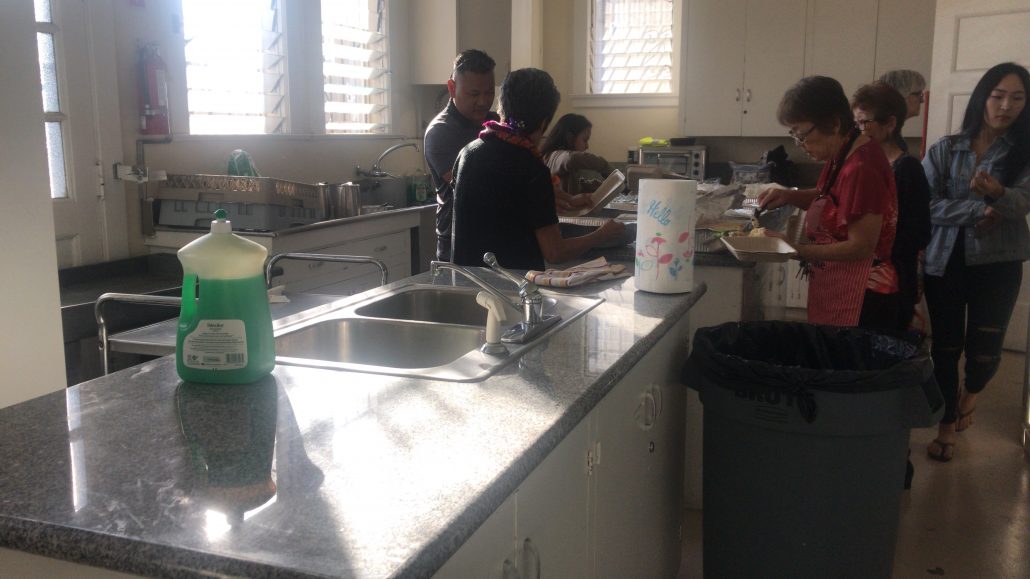Juniors create shelter for homeless students

After meeting in a public policy class on nonprofits last year and realizing the rising problem of college homelessness, juniors Abigail Leung and Esther Cha wanted to make a difference. Together, the students co-found Trojan Shelter, a home for college students experiencing housing insecurity. They plan to launch the program in Fall 2019.
“There’s a rising college homelessness issue,” Cha said. “Even at USC, there’s approximately 2,000 students who are homeless or [have experienced] homelessness in the past 12 months. That’s just not OK.”
Cara Esposito, an adjunct professor who taught Leung and Cha at the Price School of Public Policy will be the coordinator for the shelter.
“These are extraordinary students,” Esposito said. “They really are going to change the world.”
After hearing from guest speaker Louis Tse, who co-founded UCLA’s Bruin Shelter, in their public policy class, the two were inspired to create their own shelter for USC students at a church in Koreatown. The name of the church has not been stated officially.
“The church [in Koreatown] initially offered their space to the Bruin Shelter, but they were too far away,” Leung said. “So, we were able to make that connection, and in August 2018, we sat down with the church and decided to move forward with the project.”
As part of fundraising efforts for the shelter, Cha and Leung organized a competition with Bruin Shelter to see who could raise $15,000 first. Each shelter raised $32,000 in one month via CrowdRise, an online crowdfunding website. The shelters received donations from the Thornton Foundation, Students 4 Students (a nonprofit organization dedicated to ending college homelessness) and Home Depot.
According to Cha, fundraising is a top priority for jumpstarting Trojan Shelter, along with ensuring infrastructure to house the students in need is in place.
“Because it’s housing students, there’s not a lot of room for error,” Esposito said. “We’re really trying to build up the whole infrastructure of the shelter before we open our doors.”
The co-founders are currently looking for student volunteers to help out at the shelter.
“It’s obviously going to be a place for people who are homeless to come find refuge and a safe place to stay,” Cha said. “But more than that, we want it to be a place where our students can grow and learn and become advocates for this issue.”
Student volunteers will serve on the executive board committee and help coordinate the shelter’s opening. The organizers hope to get student volunteers trained so that they can become full staff members by Fall 2019.This will involve staying overnight with the residents and helping prepare meals.
“Something we really want for the Trojan Shelter is for the residents and staff to become very close,” Leung said. “We’re hoping to have a lot of bonding activities led by shelter staff.”
Along with recruiting volunteers, Leung and Cha are focused on redecorating the space and equipping the shelter with basic resources, such as food, toiletries, towels, bedding and mattresses.
According to Leung, Trojan Shelter plans to partner with other organizations such as Share A Meal and Swipe Out Hunger to help gather food-related resources. The shelter is also working on building partnerships with the University through the Suzanne Dworak-Peck School of Social Work and the Keck School of Medicine.
The shelter also plans to participate in Homelessness Awareness Week next semester.
“We are a USC organization, but we’re not just open [to] USC students,” Cha said. “We’re serving any college student between the ages of 18 to 25 who [is] enrolled in at least two units.”
Cha said Trojan Shelter’s priority is to raise awareness for college homelessness and provide a safe community for college students who face housing insecurity regardless of which university they attend.
“There’s an issue at USC with homelessness but we’re not just addressing that,” Cha said. “This is a bigger issue.”

